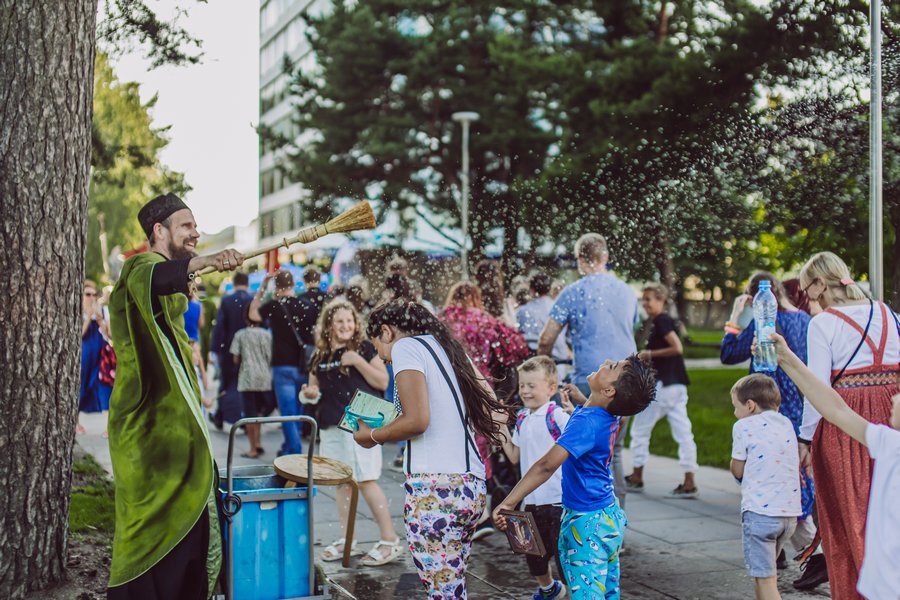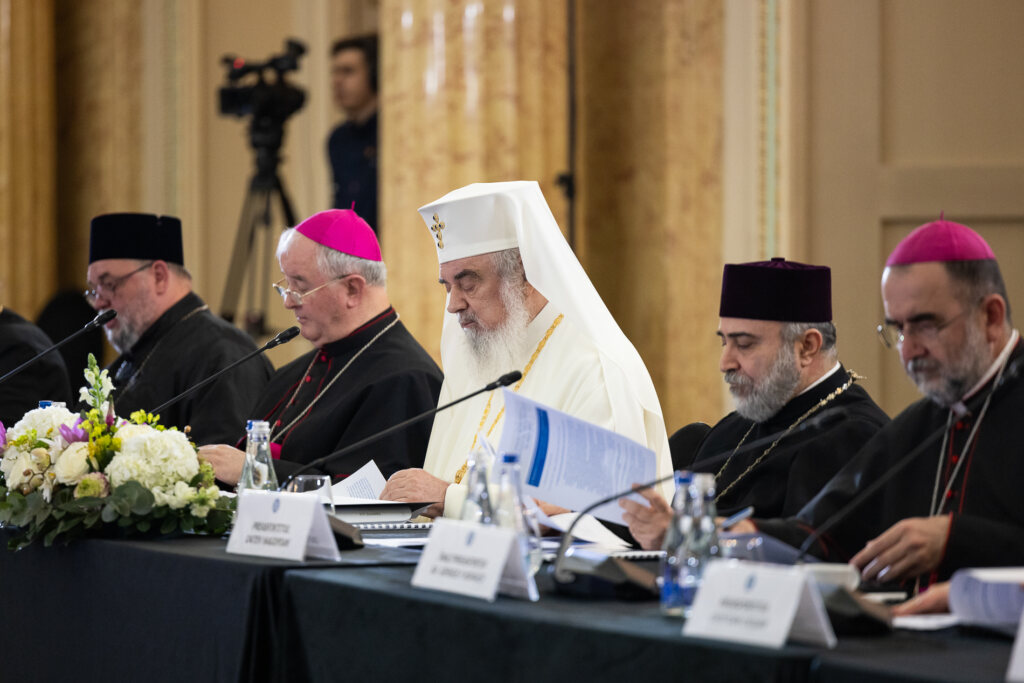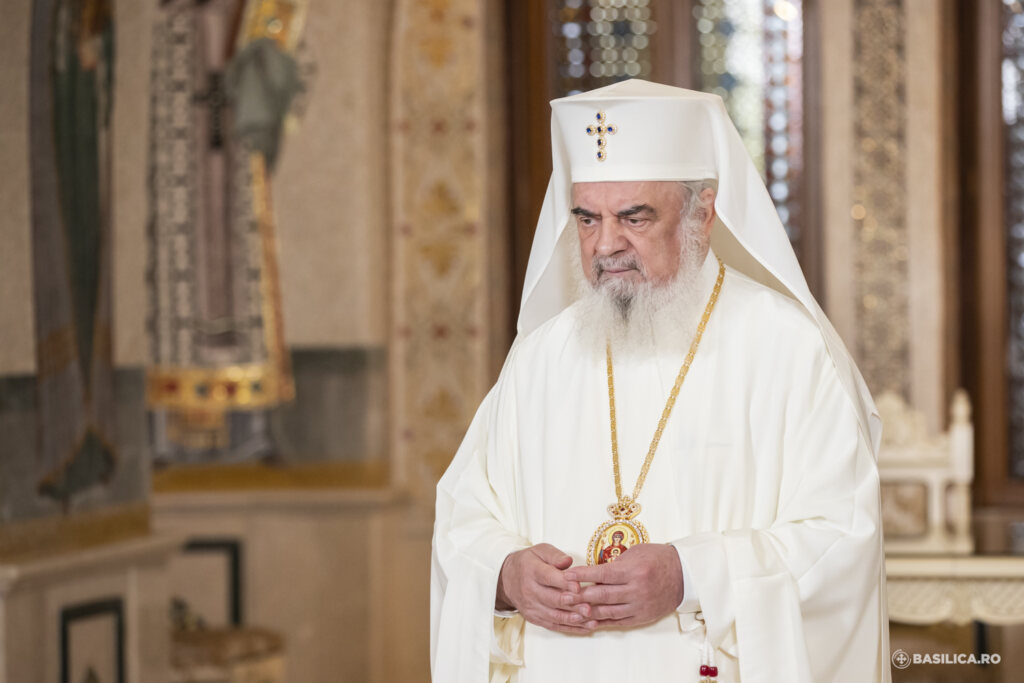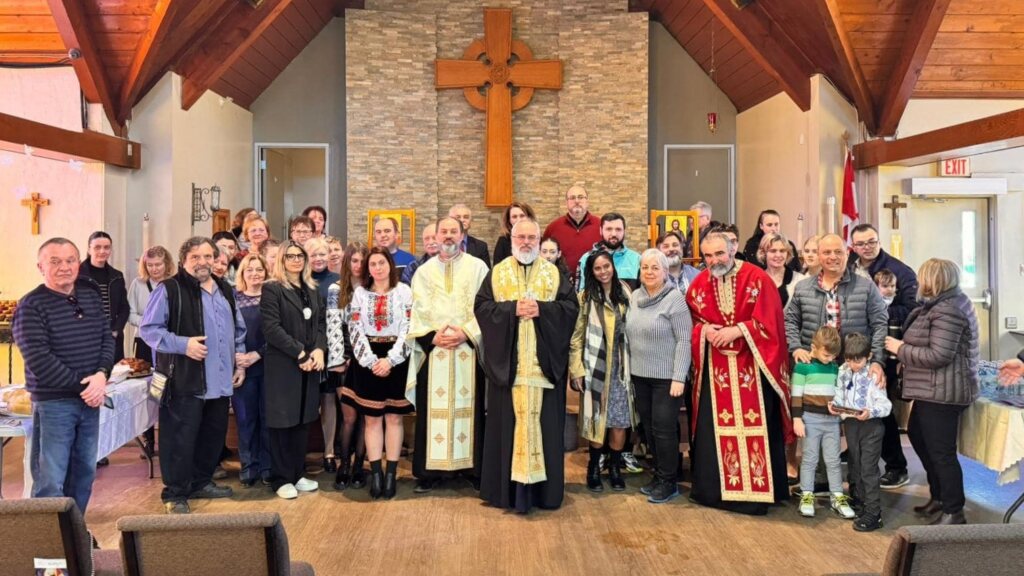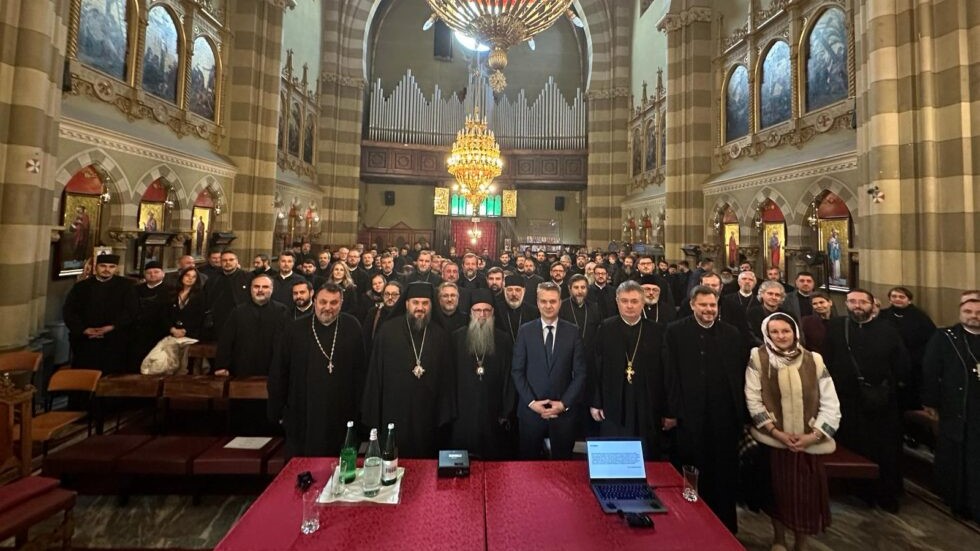During his Sunday homily Patriarch Daniel of Romania reflected on the parable of the prodigal son stressing the inestimable value of the human soul and spoke about man’s freedom, the mystery of repentance and God’s infinite forgiving love for every repenting sinner.
The Romanian Patriarch noted that the Heavenly Father refers to us with a merciful love and that ‘when human freedom becomes self-destructive, God’s wisdom calls every one to repentance.’
‘The father of the prodigal son,’ the patriarch said, ‘makes no reproach to his son who returned home, nor does he ask for an inventory of the scattered goods, because a saved soul, gained for eternity, is more precious than any fortune.’
His Beatitude noted that ‘God’s merciful love, that surpasses any material calculus, overwhelms the justice according to which the prodigal son could have been punished.’
The Patriarch explained that the parable of the prodigal son is closely linked to the Mystery of Confession or ‘the Mystery of man’s reconciliation with God,’ pointing to ‘the steps of the spiritual ascent from sin, the essential steps of repentance,’ experienced by the younger son in the gospel.
‘The Gospel reading of the second Sunday of Triodion teaches us the way to repent and the greatness of the gift and joy of forgiveness. It teaches us how wonderful is the finding of the lost or the rising of the one spiritually dead, and how beauteous is the state of the human soul after it receives remission of sins,’ Patriarch Daniel added.
The Primate of the Romanian Orthodox Church offered his Sunday reflections during the Divine Liturgy celebrated at the St Gregory the Enlightener Chapel of his patriarchal residence highlighting the gift of freedom granted by God to humankind. Referring to the prodigal son, His Beatitude said that ‘God respects man’s freedom to follow his own way in life.’
‘Man is free to use all the energy of his life, his natural gifts or those acquired from others as he wishes, and God respects this freedom, even though He knows that man can use it contrariwise to the divine will,’ the Patriarch stressed Feb. 4.
His Beatitude went on saying that the day’s gospel shows us the ‘drama or the failure of man’s freedom as estrangement from God.’
The Heavenly Father relates to us with merciful love, the patriarch said, therefore ‘when man’s freedom becomes self-destructive or foolish, God’s wisdom calls man to repent.’ The moment ‘a sinner returns to God and makes the first steps to repentance, God welcomes him or her in haste.’
‘The hands of God the Father stretched to embrace those repenting are actually the sacred works of Christ’s Church: the calling to repentance and the remission of sins. These are the fatherly arms shown to people. They are the keys to enter the Heavenly Kingdom according to Saint Cyril of Alexandria. Through these works, all those fallen and alienated from God and their neighbour receive salvation provided they sincerely repent from the depth of their heart.’
The patriarch also explained the symbols in the parable of the prodigal son:
· The Father symbolises ‘the fatherly love of God the Father of our Lord Jesus Christ and our Heavenly Father.’
· The younger son symbolises ‘the disordered freedom of the passionate man as a manifestation of his sinful life.’
· The elder brother represents ‘some believers who love God and the Church, who are diligent and honest, with a pure life and much devotedness, but who are often uncompassionate and unforgiving with the sinners in their community, whom they judge morally more than help them to correct spiritually.’
· The far country symbolises ‘man’s alienation from God and from the healthy state of freedom.’
· The famine reflects ‘the trials permitted by God to men, not as punishment, but as pedagogy, so that man understand that every material possession is limited, including his earthly life.’
· The new robe of the paternal forgiveness means ‘the cleansing of the soul of its dark states imprinted with sins.’
· The golden ring put on the hand of the returning prodigal son symbolises ‘the re-adoption by grace of the person alienated by sin; it is the sign of the re-admission of the repenting man to God’s continuous, undiminished, unchanging love.’
· The new sandals suggest the grace or help received from God to tread on the thorns of sinful temptations and to walk on the path of salvation, that is, the path of humble love for God and for others.
· The fatted calf killed for the feast of joy symbolises the Mystery of the Holy Eucharist.
Ending his homily, Patriarch Daniel noted that the parable of the prodigal son urges us to repent more and to receive Holy Communion more often to enjoy forgiveness, the renewal of life and the work of the Risen Christ in our life.
Photo courtesy of the Basilica.ro Archive


